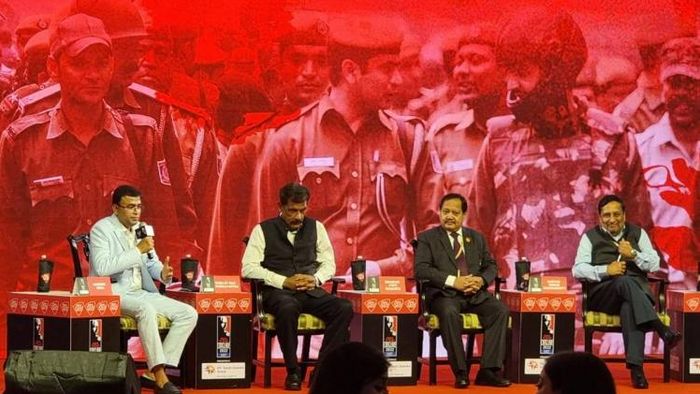"To safeguard integrity & sovereignty of country": Assam DGP defends police encounters
Bhaskar Jyoti Mahanta today defended state police amid a surge in police encounters since Himanta Biswa Sarma took charge as the Chief Minister.

- Jul 04, 2022,
- Updated Jul 04, 2022, 12:42 PM IST
Assam’s Director General of Police (DGP) Bhaskar Jyoti Mahanta today defended state police amid a surge in police encounters since Himanta Biswa Sarma took charge as the Chief Minister.
It needs mention here that a total of 51 people have been gunned down with at least 139 injured while allegedly trying to flee from police custody or attacking law enforcers since the second BJP government under Sarma assumed office in May 2021.
“You need to think about the insurgency situation that’s been in Assam for last couple of decades,” Mahanta said, adding that “the number of encounters police has been doing with extremists basically is to safeguard the integrity and sovereignty of this country primarily and if someone fires at you, we are telling our policemen to fire back,” Mahanta said at a session of the India Today Conclave – East.
Mahanta, while insisting that the police force is cognizant of the fact that any action by police personnel is subject to scrutiny by the judiciary, said that someone “killing just for the heck of killing” is liable to be punished.
Former West Bengal DGP Surajit Kar Purkayastha, dismissing reports of political violence in West Bengal as “media hypes”, said, “Actually there are many killings based out of personal rivalry and many a time it is being attributed to political violence.”
Stating that “there is a tendency to put the police as a punching bag”, Purkayastha emphasized that “police also has a huge contribution to society.”
“Can you think of one day when there is no police in society? I think we should also look at the positive side of what the police is doing,” he stressed.
Former Kolkata police Commissioner Gautam Mohan Chakrabarty, asked about possible political vindictiveness in Bengal after the Trinamool Congress toppled the former Left regime, said: “I did not see any vindictive attitude when the former Opposition leader became the Chief Minister of the state. But of course, the total approach to the administration always changes. When the Opposition leader becomes the Chief Minister of the State or the country's Prime Minister, there will be changes in someone’s outlook.
He further queried if the political leaders were willing to give “functional autonomy” to the police as mandated by the Supreme Court in 2006, adding that none of the states have fully complied with the 2006 7-point directives ordered by the Supreme Court.
If that is done, he said, the performance of the police across India “will improve a lot.”
The Supreme Court in September 2006 directed all states and Union Territories to bring in police reforms.